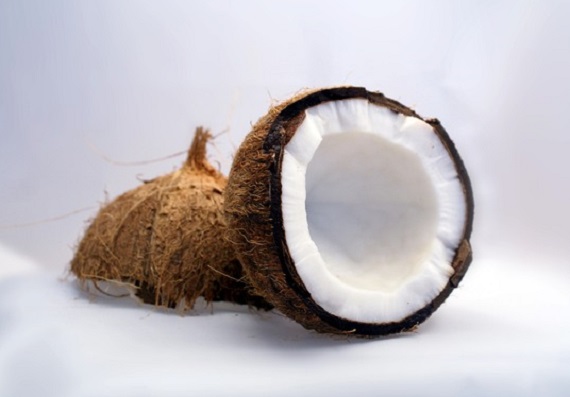


Australia's most comprehensive organic and natural directory
Blog / Food
09 Jun 2017The Many Wonderful Uses for Coconuts

The palm tree is called “The Tree of Life” because they supply coconuts which are a nutritious and versatile food with many wonderful health-giving properties. Coconuts have antiviral, antifungal, antibacterial, and anti-parasitic properties which make them wonderful immune-boosters, and are packed with fibre, vitamins, minerals, protein and fatty acids.
Most people are familiar with eating coconut flesh, but here are 7 other wonderful and healthy uses for coconuts.
Coconut Water
Coconut water comes from a young, green coconut and is a clear liquid with a lovely sweet taste. It is loaded with electrolytes which are the minerals responsible for hydration and the proper functioning of nerves and muscles. Coconut water is a great drink to consume during and after a sporting event or a hard work out because it does not contain flavourants, sugar or nasty additives unlike conventional sports drinks.
Coconut Milk
Tinned coconut milk is easy to find in grocery stores and is a popular ingredient in curries, stews and soups. It is made by boiling grated coconut flesh until the milk rises to the top but you can also make your own coconut milk by blending fresh coconut meat and water together and then carefully straining it. Coconut milk contains medium chain saturated fatty acids (MCFAs) and one in particular is called lauric acid. In the body lauric acid is converted into a compound called monolaurin which has antiviral and antibacterial properties.
Coconut Cream
Coconut cream is made in the same way as coconut milk but the cream is thicker and rises to the top above the milk. It contains all the same nutritional benefits but has a higher fat content which makes it more satiating. You can use coconut milk in smoothies, milkshakes, porridge, curries and soups.
Coconut Butter
Coconut butter is made from blending dried shredded coconut pieces with coconut oil to form a rich and spreadable paste. The coconut pieces have not been defatted so this contributes to the richness and gives it a real buttery texture. Coconut butter is a great spread for crackers, toast or sandwiches.
Coconut Oil
Coconut oil is one of the most popular cooking oils because it is a stable oil due to its saturated fat content. It can also be used as an addition to the diet in smoothies and other dishes because it contains medium chain fatty acids (MCFAs) which are rapidly metabolised into energy by the liver and are not stored as fat. Coconut oil can also be used externally on the hair and skin to keep it hydrated, smooth and treat skin disorders.
Coconut Flour
Coconut flour is made up of dried ground coconut flesh and is a very popular low-carbohydrate and gluten-free flour. This healthy flour is great to bake with because it is very fine, packed with fibre and provides a subtle coconut flavour. Coconut flour is very absorbent so you’ll likely only need 1/4 to 1/3 cup coconut flour for every 1 cup of regular grain flour.
Coconut Sugar
Coconut sugar doesn’t actually come from the coconut itself but instead from the sap of the flower buds on the palm tree. It is packed with vitamins, minerals, and amino acids and is safe for diabetics because it’s a low glycemic sweetener. You can replace sugar for this caramel-coloured sweetener at a ratio of 1:1.
On the Australian Organic & Natural Directory you can find suppliers of organic coconut water, organic coconut oil and other organic coconut products in Australia.
Sources
https://food52.com/blog/14048-all-those-coconut-products-how-to-use-them
http://www.care2.com/greenliving/the-numerous-health-benefits-of-coconuts-2.html








